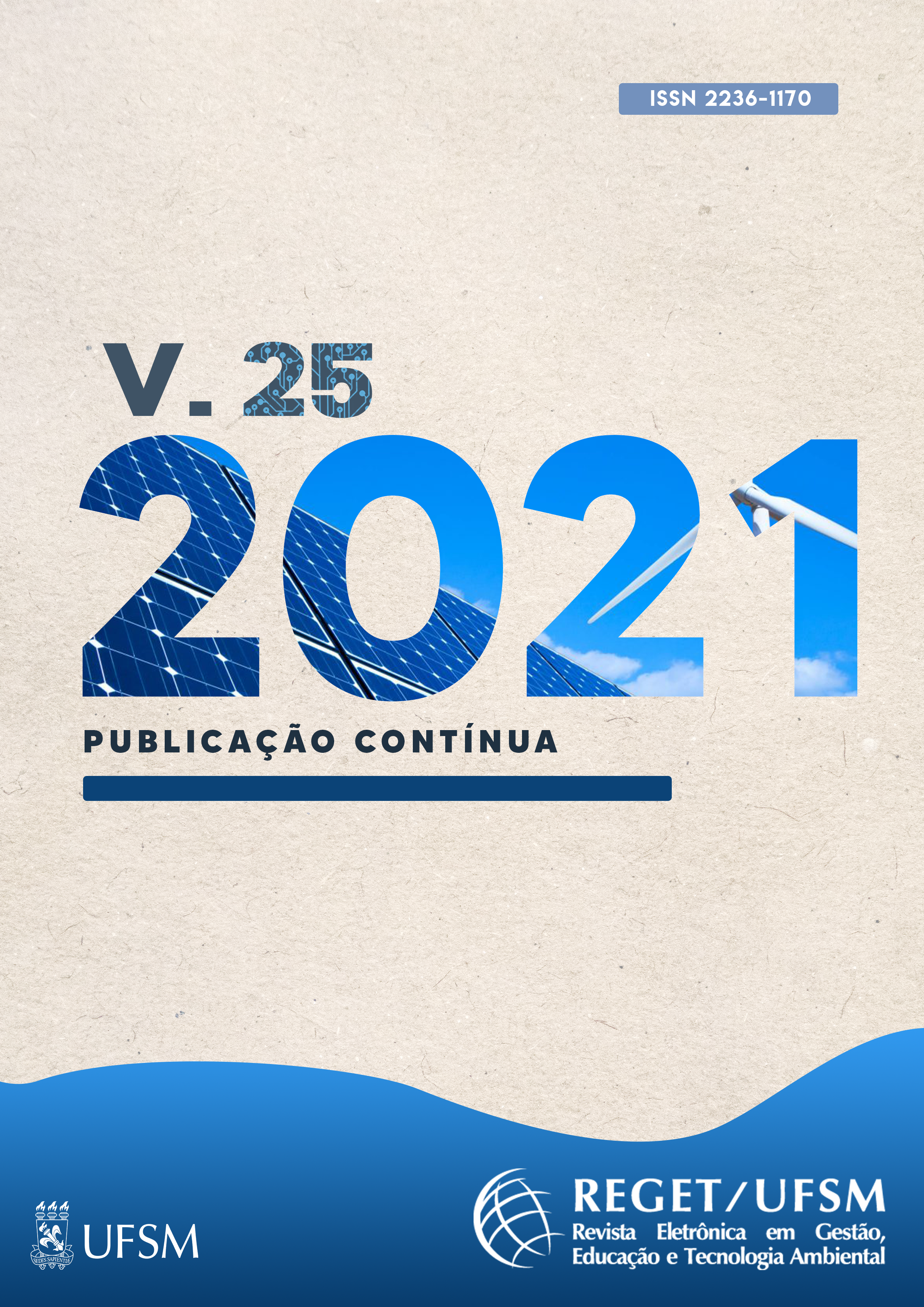The strategies of the players of an RPG game in the context of water resources management: an analysis based on the discourse of the collective subject
DOI:
https://doi.org/10.5902/2236117055298Keywords:
Collective Subject Discourse, Environmental Education, Water resources, CSDAbstract
Games are widely used in Education because they enable analyzing strategies that come close to reality. In Environmental Education, the game helps understand a particular theme and allows the observation of the approach from a player’s perspective. In this way, each person can develop strategies that s/he considers relevant in the game. This study analyzes players’ strategies in an RPG (Role-Playing Game) in water resources. This work's main contribution is an empirical and qualitative study on individuals’ motivation and how they developed their strategies. As a result, we present the analysis of the players' habits through a semi-structured interview, which resulted in a set of speeches based on the Collective Subject Discourse (CSD).
Downloads
References
ADAMATTI, D. F.; SICHMAN, J. S.; BOMMEL, P.; DUCROT, R.; RABAK, C.; CAMARGO, M. E.; JogoMan: A prototype using multi-agent-based simulation and role-playing games in water management. In: PROCEEDINGS OF THE SMAGET-CABM-HEMA CONFERENCE, 2005.
BARBOSA, Mariana Abibi Guimarães Araujo et al. Maximum streamflow: brief description of concepts and methods of regionalization. Revista Eletrônica em Gestão, Educação e Tecnologia Ambiental, v. 23, p. 42, 2019. DOI: https://doi.org/10.5902/2236117039846
CHACON-PEREIRA, ALESSANDRA ET AL. Educação ambiental na gestão de recursos hídricos baseada no modelo de licenciamento ambiental. Desenvolvimento e Meio Ambiente, v. 49, 2018. DOI: https://doi.org/10.5380/dma.v49i0.57747
CHOI D, KIM J. Why people continue to play online games: In search of critical design factors to increase customer loyalty to online contents. CyberPsychology & behavior, 7(1):11-24, 2004. DOI: https://doi.org/10.1089/109493104322820066
DUARTE G B, ALDA L S, LEFFA V J. Gamificação e o feedback corretivo: considerações sobre a aprendizagem de línguas estrangeiras pelo Duolingo. Raído. 2016;10(23):114-28.
FOGG, B.J. Persuasive technology: using computers to change what we think and do.Stanford University, p.2, 2002. DOI: https://doi.org/10.1145/764008.763957
JACOBI, P. R.; FRANCALANZA, A. P. Comitês de bacias hidrográficas no Brasil: desafios de fortalecimento da gestão compartilhada e participativa. Desenvolvimento e Meio ambiente, v. 11, 2005. DOI: https://doi.org/10.5380/dma.v11i0.7816
LEFEVRE, F.; LEFEVRE, A.B M.; TEIXEIRA, J. J. O discurso do sujeito coletivo: uma nova abordagem metodológica em pesquisa qualitativa. In: O discurso do sujeito coletivo: uma nova abordagem metodológica em pesquisa qualitativa, pp. 138-138, 2000.
LEVEVRE, F.; LEFEVRE, A. M. O discurso do sujeito coletivo: Um enfoque em pesquisa qualitativa. Caxias do Sul: Pensamento Editora, 3. ed., 2003.
LEFEVRE, F.; LEFEVRE, A. M. Discourse of the collective subject: social representations and communication interventions. Texto & Contexto-Enfermagem, 23(2):502-7, 2014. DOI: https://doi.org/10.1590/0104-07072014000000014
de LIMA, J. M. O jogo como recurso pedagógico no contexto educacional. São Paulo: Cultura Acadêmica: Universidade Estadual Paulista, Pró-Reitoria de Graduação, 2008.
MELO, A. C. B. de. Gestão de recursos hídricos: um estudo de caso em Picuí (PB). Bachelor's thesis, 2019.
MERO, G. T.; MERO, M. J.; MERO, G. T.; MICHAEL J. Role playing game. United States patent US 5,810,666, 1998.
MOTA, F. P.; ADAMATTI, D. F. Programming teaching in high schools: An analysis based on the discourse of collective subject. In: 2015 IEEE Frontiers in Education Conference (FIE), pp. 1-5, IEEE, 2015. DOI: https://doi.org/10.1109/FIE.2015.7344224
MOTA, F.; BOTELHO, S. C. B.; ADAMATTI, F. D. Serious Games as a Tool to Change People Attitudes: Analysis Based on the Discourse of Collective Subject. Literacy Information and Computer Education Journal (LICEJ),7(4):2398-405, 2016. DOI: https://doi.org/10.20533/licej.2040.2589.2016.0318
PRENSKY M. Digital natives, digital immigrants. On the horizon, 9(5), 2001. DOI: https://doi.org/10.1108/10748120110424816
TESSARO, J. P.; JORDÃO, A. P. Discutindo a importância dos jogos e atividades em sala de aula. Psicologia. com. pt, o portal dos psicólogos; 2 (08), 2007.
TUNDISI J. G. Novas perspectivas para a gestão de recursos hídricos. Revista USP, 1(70):24-35, 2006. DOI: https://doi.org/10.11606/issn.2316-9036.v0i70p24-35
VYGOTSKY L. S. Aprendizagem e desenvolvimento intelectual na idade escolar. Linguagem, desenvolvimento e aprendizagem,10:103-17, 1988.
WAHRLICH, Júlia et al. AVALIAÇÃO DA SUSTENTABILIDADE DO CICLO DE VIDA: UMA REVISÃO. Revista Gestão & Sustentabilidade Ambiental, v. 9, n. 2, p. 183-201, 2020. DOI: https://doi.org/10.19177/rgsa.v9e22020183-201
Published
Versions
- 2022-08-03 (4)
- 2022-07-25 (3)
- 2022-07-21 (2)
- 2021-03-22 (1)
How to Cite
Issue
Section
License
Copyright (c) 2021 Revista Eletrônica em Gestão, Educação e Tecnologia Ambiental

This work is licensed under a Creative Commons Attribution-NonCommercial-ShareAlike 4.0 International License.
DECLARATION




